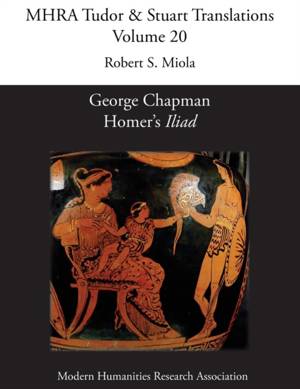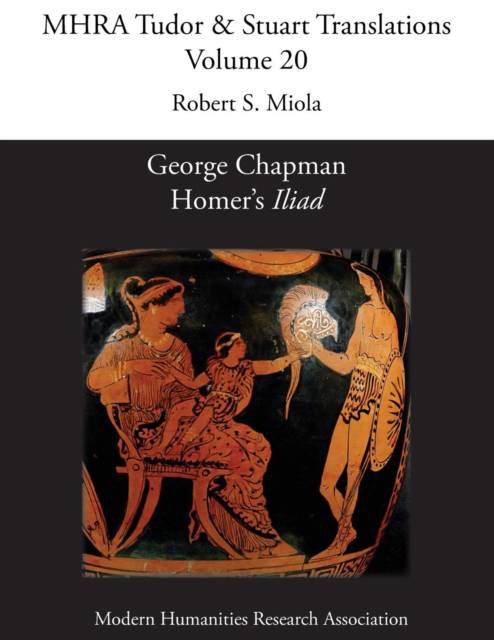
- Retrait gratuit dans votre magasin Club
- 7.000.000 titres dans notre catalogue
- Payer en toute sécurité
- Toujours un magasin près de chez vous
- Retrait gratuit dans votre magasin Club
- 7.000.0000 titres dans notre catalogue
- Payer en toute sécurité
- Toujours un magasin près de chez vous
George Chapman, Homer's 'Iliad'
Description
Famously praised by John Keats for speaking 'loud and bold', Chapman's Homer brought Greek poetry and civilization to life for centuries of readers. Many have praised its rough energy and creativity, the crashing power of the verses, its grim depiction of life and death in war. The companion to Gordon Kendal's edition of Chapman's Odyssey, this edition of his Iliad features a newly edited version of the 1611 printing (including all the translator's combative notes and commentary) in modern spelling and punctuation. The introduction, "Looking into Chapman's Homer," explores the complicated history of revision behind the text, the intermediate Latin sources, and, most important, Chapman's early modern reception of the Iliad, that is, the later political, cultural, social, literary, moral, and theological ideas that shape his reading of the ancient Greek text. The edition provides also full textual collations, lexical and explanatory notes, a glossary, bibliography, an appendix on Chapman's contributions to the English language, and index. Like his great contemporary and rival, William Shakespeare, Chapman was a dramatist and one of the great wordsmiths of the Renaissance, a creator of the language that we speak and write today as Modern English. Chapman's Iliad deploys the resources of this developing English language for stunning poetic effects; this raw and powerful version of Homer's inspired song stands also as a masterpiece of English literature.
Spécifications
Parties prenantes
- Editeur:
Contenu
- Nombre de pages :
- 480
- Langue:
- Anglais
- Collection :
- Tome:
- n° 20
Caractéristiques
- EAN:
- 9781781881194
- Date de parution :
- 11-09-17
- Format:
- Livre broché
- Format numérique:
- Trade paperback (VS)
- Dimensions :
- 216 mm x 279 mm
- Poids :
- 1102 g

Les avis
Nous publions uniquement les avis qui respectent les conditions requises. Consultez nos conditions pour les avis.





